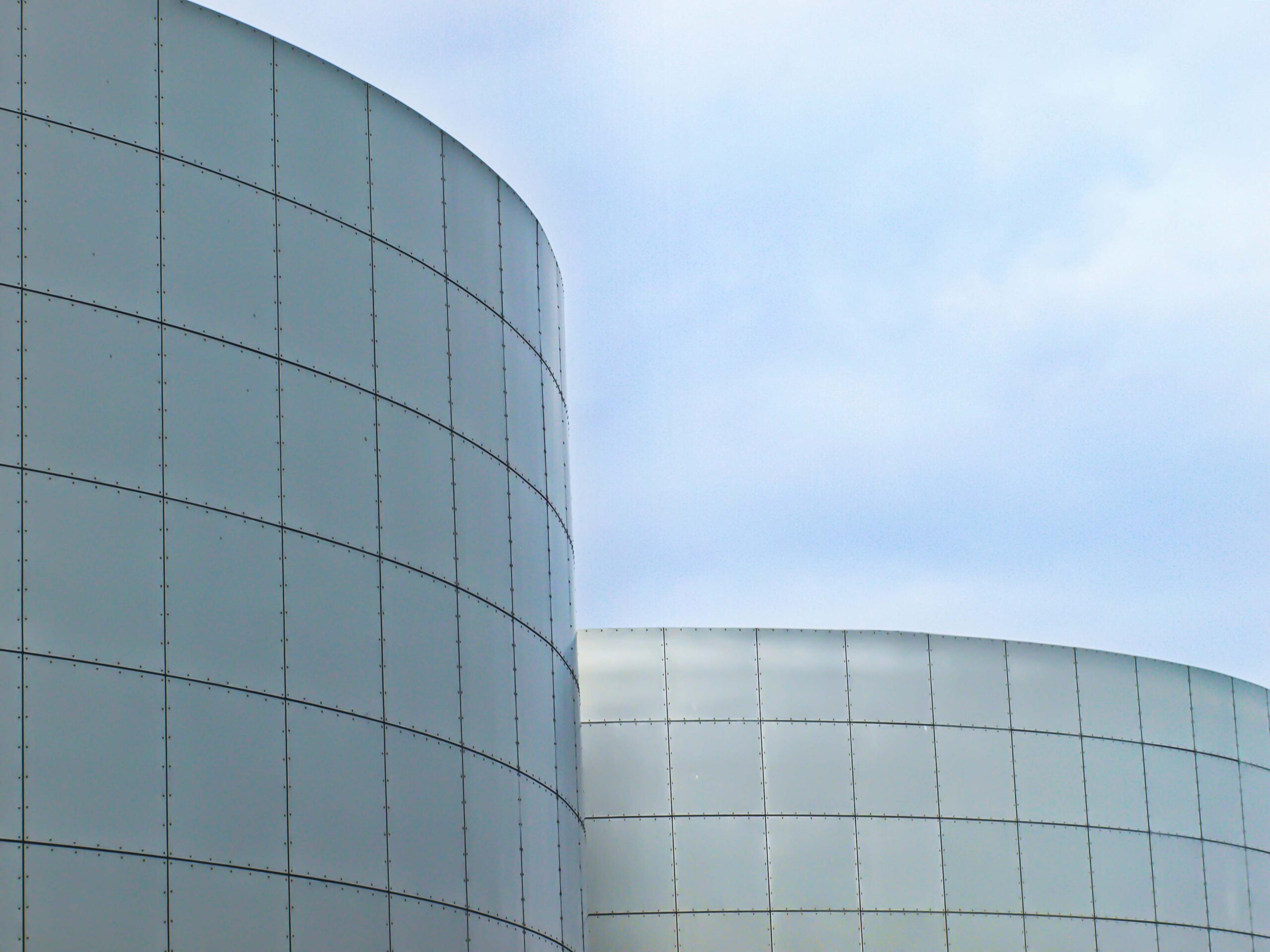Herbal Medicine for Prostatitis: Natural Relief.
Numerous men unknowingly live with prostatitis, a condition that can substantially impact their well-being. The growing prevalence of this concern has caused a greater number of individuals to seek botanical remedies for prostate inflammation as a feasible substitute to medical therapies. In contrast to conventional medications, which can have undesirable side effects, natural comfort for prostate inflammation is gaining popularity among those seeking more secure, potent options. This article explores the world of herbal treatments for prostate inflammation, focusing on Diuretic and Anti-inflammatory Pill for prostatitis treatments that can assist reduce signs and improve general prostatic health.
The interest in herbal treatments for prostatitis is highlighted by newly published research indicating that several natural therapies can boost quality of life without the drawbacks typical of standard medications. With statistics projecting that up to 90% of men will experience benign prostatic hyperplasia (BPH) by age 85, understanding these herbal options has never been more critical.
Join us as we delve into the various herbs and therapies that provide hope for men suffering from prostatitis, supported by proof from recent studies and testimonials.
Key Takeaways
- Prostate inflammation affects a great number of men, notably those over 50.
- Herbal medicine offers a prospective answer with less undesirable effects than drugs.
- Research supports the utilization of particular herbs like stinging nettle and Pygeum africanum for easing signs.
- A diet abundant with antioxidants, omega-3 fatty acids, and selected herbs can bolster prostatic well-being.
- Consulting a medical expert about botanical treatments is crucial for safety and success.
Understanding Prostatitis
Prostate inflammation is the inflammation of the prostatic gland, impacting many men, notably the elderly. It’s crucial to comprehend the idea of prostatitis for preserving prostatic well-being. The persistent form of this condition affects 2.2% to 13.8% of men, demonstrating its prevalent nature. This emphasizes the need for knowledge and early detection.
There are different types of prostatitis, each with its own collection of signs and therapy challenges. Long-term prostate inflammation can have severe somatic, emotional, and financial and social consequences. In China, for case in point, the occurrence is as high as 46.6%. The recurrent symptoms can significantly diminish a man’s life satisfaction, making efficient management crucial.
Several elements, including age, lifestyle, and hormonal changes, can initiate prostatitis. Correct identification of the condition’s category is crucial for focused remedies. This comprehension helps with identifying indications and inspires men to seek timely medical help, improving their prostatic well-being.
Symptoms of Prostatitis
Prostate inflammation signs can substantially disrupt everyday life. Typical indications of prostate inflammation include dysuria, increased frequency of urination, and trouble voiding. Countless individuals also suffer from pain in the groin, lower abdomen, or lower back, resulting in considerable prostatitis discomfort.
Sudden bacterial prostate inflammation presents with severe symptoms like elevated temperature, chills, and severe body pains. Individuals might also notice blood in their urine or experience pain during ejaculation. In contrast, long-term bacterial prostate inflammation emerges slowly, characterized by an compulsive urge to urinate, dysuria, and ongoing pelvic discomfort lasting over three months.
Long-term pelvic discomfort syndrome, the most prevalent form of prostatitis, results in extended discomfort without a definite cause. Signs can be diverse and may include discomforts in multiple regions beyond the pelvic region. Adjustments to habits, like steering clear of spicy meals and alcohol, are promising in easing some of these troubling symptoms of prostatitis.
Comprehending these indications is vital for prompt identification and management. Prostatitis not only results in physical discomfort but may also affect emotional well-being, causing many individuals to seek medical assistance. Identifying the symptoms of both immediate and long-term prostate inflammation is necessary for proper management.
| Category of Prostate Inflammation | Common Symptoms | Timeframe |
|---|---|---|
| Acute Bacterial Prostatitis | Fever, chills, dysuria, body aches, hematuria | Short-term |
| Chronic Bacterial Prostatitis | Urgent need to urinate, painful urination, pelvic pain | Extended period |
| Long-term Pelvic Discomfort Syndrome | Pain in pelvic region, inguinal area, and sometimes bowels | Lasts over three months with variable symptoms |
Kinds of Prostate Inflammation
Prostate inflammation is an irritation of the prostate gland, manifesting in several forms. It’s crucial to identify the distinct kinds to comprehend the right treatment and symptom control. The main categories include:
- Acute Bacterial Prostatitis: This condition appears quickly and needs prompt medical attention. Symptoms include high temperature, chills, and severe pelvic pain. Management entails admission to hospital and IV antibiotics.
- Chronic Bacterial Prostatitis: This variant remains over time. It often results in frequent UTIs. Therapy includes a four to six week course of taken antibiotics.
- Chronic Pelvic Pain Syndrome (CPPS): This form constitutes a significant portion of prostatitis cases. It’s characterized by pelvic discomfort without a urinary tract infection. Controlling CPPS demands customized therapies based on specific indications.
- Symptomless Inflammatory Prostate Inflammation: This disorder is identified during examinations for other issues. Despite no symptoms, irritation is present. Therapy may be unnecessary unless other problems arise.
Each kind of prostatitis has unique traits. Acute bacterial prostatitis is more intense and sudden, while long-term bacterial prostate inflammation demands sustained care. Long-term pelvic discomfort syndrome can greatly impact life satisfaction, often necessitating a multifaceted method for easing. Medical professionals must grasp these categories to select the best treatment strategies.
Typical Causes of Prostate Inflammation
Prostatitis can stem from several sources. Bacterial invaders are a chief prostate inflammation, causing sudden or chronic disorders. Pathogens in the kidney or reproductive organs are key prostatitis risk factors. Acute cases often require antibacterial medications for 14 to 30 days. Chronic bacterial prostatitis may demand therapy for up to 12 weeks.
Hormonal shifts can also initiate prostate inflammation. Prostatic enlargement, often coupled with irritation, complicates identification and treatment. Living habits greatly impact the risk of developing prostatitis. A inactive lifestyle, alcohol overuse, and inadequate nutrition are all risk elements.
Years is a important element. Chronic prostatitis or chronic pelvic pain syndrome (CPPS) impacts 10 to 15 percent of the U.S. male population. Younger and midlife men are more prone. Past episodes of prostatitis raise the chance of later episodes. Men with HIV or AIDS, those requiring catheters, or those who have undergone prostate tissue biopsies face greater risks.
| Prostatitis Risk Factors | Effect |
|---|---|
| Pathogenic bacteria | Can lead to sudden or long-term prostate inflammation |
| Age | Higher risk in young to middle-aged men |
| Prior prostatitis episodes | Higher chance of reoccurrence |
| Compromised immune systems (such as HIV/AIDS) | Increased susceptibility to infections |
| Use of urinary catheters | Higher likelihood of UTIs |
| Muscle cramps | Can add to discomfort and challenges |
| Poor lifestyle habits | Influence overall prostate health |
Pathogenic bacteria can lead to complications like inflammation of the epididymis or prostatic abscesses if left unmanaged. Long-term conditions can also lead to psychological impacts, such as anxiety or low mood. This emphasizes the necessity to tackle these prostate inflammation causes early and effectively.
Herbal Medicine for Prostate Inflammation
Prostatitis Testimonials treatments for prostatitis are gaining traction for their natural relief possibility. Ancient herbs have been employed for centuries, presenting a comprehensive method to this frequent issue. Countless turn to these substitutes, looking for secure and efficient therapies.
Herbs Used in Conventional Remedies
Multiple herbs are famous in herbal medicine for their therapeutic benefits in controlling prostate inflammation signs. Prominent examples include:
- Saw Palmetto: Thought to to have anti-inflammatory effects, this herb supports urinary health and alleviates indications associated with prostatic enlargement.
- Urtica dioica: Frequently combined in combination with other herbs, stinging nettle can help reduce bladder signs and may have diuretic effects.
- Pygeum: Obtained from the bark of an African species, pygeum is conventionally utilized for its ability to enhance urinary flow and lessen nocturnal urination.
Research continues to to explore the advantages of these conventional botanicals, seeking to comprehend their specific benefits for prostate inflammation patients.
Empirical Support Backing Herbal Remedies
Research have demonstrated the effectiveness of various herbal remedies in reducing prostate inflammation signs. Scientific evidence supports botanical treatments, with hopeful findings. For example, a natural compound found in some herbal medications, has demonstrated ability to boost bladder signs linked to BPH. While support for pygeum is mixed, it has still been frequently examined for its prospective merits.
While herbal medicine for prostatitis can offer relief, further investigations are needed to validate its success. The AUA stays prudent about advocating herbal therapies until more robust evidence emerges. It’s essential to understand the balance between conventional botanicals and continued research for those exploring these herbal alternatives.
Diuretic and Anti-Inflammatory Treatments
Men experiencing prostatitis have achieved comfort in diuretic and anti-inflammatory medications. These medications enhance urine flow and lessen irritation. Being aware of the pros and likely negative reactions is vital for selecting suitable treatments.
Pros of Diuretic and Anti-Inflammatory Treatments
Diuretic and anti-inflammatory pills for prostatitis provide several pros:
- Enhanced Urinary Function: Many patients encounter better urinary function, reducing urgency and discomfort.
- Lowered Irritation: These pills efficiently combat inflammation, relieving pelvic pain and unease.
- Symptom Control: Consistent intake can manage symptoms, enhancing everyday living for those suffering.
Potential Side Effects
It’s essential to acknowledge the side effects of prostate inflammation drugs. Typical concerns include:
- Migraine-like pain
- Stomach upset
- Increased urination frequency
- Vertigo or faintness
When talking about therapy with a healthcare provider, consider both advantages and undesirable effects. This awareness secures effective symptom management while minimizing adverse reactions.
| Medication | Type | Pros | Common Side Effects |
|---|---|---|---|
| An α1-Adrenoceptor Antagonist | α1-Adrenoceptor Antagonist | Enhances urinary function, relieves LUTS | Lightheadedness, fatigue |
| Finasteride | Hormone Blocker | Decreases prostate volume, improves urinary function | Libido issues, breast tenderness |
| An α1-Adrenoceptor Antagonist | Alpha-1 Blocker | Improves bladder function, Lowers the need to urinate urgently | Dizziness, Migraine-like pain |
| A 5α-Reductase Inhibitor | Hormone Blocker | Reduces prostate enlargement | Tiredness, sexual dysfunction |
Traditional Herbs Used in Prostatitis Treatment
Investigating herbal remedies for prostatitis treatment uncovers a diverse selection of options. These herbs have been employed for centuries in botanical remedies. They present distinct advantages that can enhance the well-being of those with prostatitis.
Plantago Seeds
Plantago seeds are highly valued in traditional herbalism for their mucilaginous properties. This slime soothes inflamed tissues. It also enhances urinary function and decreases irritation in the bladder system.
Their application in traditional remedies for managing urinary problems is well-documented. This highlights their flexibility and efficacy.
Dianthus Superbus Herb
Dianthus Superbus is a potent herb renowned for its antibacterial effects. It fights infections associated with prostate inflammation. Traditionally, it has been a key ingredient in preparations for urinary disorders.
This makes it a significant element of Diuretic and Anti-inflammatory Pill Cure Epididymitis regimens.
Houttuynia Cordata Plant
Houttuynia cordata is famed for its antibacterial effects. It supports a healthier urinary tract environment. It aids in eliminating infections and reduces inflammation, improving bladder health.
Its long-standing use across cultures highlights its importance in alternative medicine.
Polygonum Aviculare Herb
Polygonum Aviculare is notable for its ability to reduce inflammation. It has been employed in conventional uses to counter inflammatory conditions. By addressing bladder inflammation, it aids ease and function in individuals experiencing prostatitis.
Herbal Remedies for Prostate Inflammation
Countless individuals search for natural remedies for prostatitis to enhance standard treatments. Dietary adjustments can significantly affect signs. Dietary items abundant with dietary fiber and beneficial fats are advantageous. Lowering dairy consumption and avoiding alcohol may also aid.
Adequate fluid intake is vital in controlling prostate inflammation signs. Consuming sufficient fluids aids in detoxification and promotes prostate well-being. Dietary supplements like zinc supplements and omega-3 fatty acids can also boost prostatic health and health outcomes.
Investigating alternative treatments like herbal options offers optimism for easing signs. Serenoa repens and Pygeum africanum extracts may improve urinary function, especially for benign prostatic hyperplasia. Quercetin is an oxidant fighter that could aid in reducing pain in chronic nonbacterial prostatitis.
“Combining nutritional adjustments and herbal supplements can enable individuals in their path to manage prostatitis symptoms effectively.”
Embracing a healthy lifestyle is essential. Frequent workouts improves general health and may alleviate prostatitis symptoms. Yoga and mindfulness practices can also boost life quality.
When thinking about herbal treatments for prostate inflammation, it’s crucial to seek advice from healthcare professionals. They can ensure the preferred treatments are secure and efficient. Understanding one’s health situation results in more personalized and successful management.
Integrated Method to Prostate Inflammation Control
A holistic approach to managing prostatitis blends efficient botanical remedies with vital lifestyle adjustments. It focuses on physical, psychological, and psychological well-being elements. This strategy is crucial for those looking for comfort from prostatitis discomfort.
Managing stress is crucial to symptom improvement. Strategies like yoga, relaxation exercises, or relaxation practices can aid in reducing nervousness and irritation. Consistent physical activity is also vital. It improves blood flow, strengthens the immune system, and can decrease pelvic pain.
- Balanced nutrition is crucial for general well-being. Include foods that reduce inflammation like fresh fruits, vegetables, whole grains, and healthy fats to support recovery.
- Drinking enough water is essential. It aids in reducing discomfort during urination and supports kidney function.
- Getting enough sleep is vital. It improves mental clarity and emotional resilience, crucial for handling long-term conditions.
By adopting these techniques, individuals can handle prostatitis efficiently. A comprehensive strategy to prostate inflammation control leads to enhanced well-being and well-being.
Prostatitis Experiences and Success Accounts
Firsthand stories often deliver the strongest proof of the efficacy of therapy choices for issues such as prostate inflammation. Firsthand experiences showcase the transformative potential of herbal remedies and comprehensive strategies in controlling prostate inflammation signs.
David’s story acts as a notable example. After experiencing 8 years of prostatitis symptoms, he turned to herbal treatments starting in February 2019. By the end of that year, he announced a complete healing, highlighting an approximately 10-month timeline for his relief. This instance enriches the growing collection of prostatitis experiences that show notable progress through botanical therapies.
Numerous men hold analogous accounts, frequently turning to private healthcare facilities for treatment. For instance, the interest in prostatitis is clear, with Google yielding over 6 million hits associated with the condition. This large volume of data reflects the difficulties many face when striving to handle their discomfort efficiently.
Typical diagnostic methods for prostatitis, including testicular examinations and prostate stimulation, hold significant importance in the management pathway. A few men, like Chris, experienced substantial relief; he states being 90% free from pain about a year and a half after his first signs. The accounts often include several experiments of different supplements and therapies, showing both the difficulties and the determination needed in managing these conditions.
Success stories demonstrate that additional people, including Howard, Adam, and Robbie, have made significant strides in beating chronic pelvic pain syndrome and additional related problems. Karl Monahan, the owner of London’s Pelvic Pain Clinic, emphasizes a holistic approach that combines lifestyle changes, dietary adjustments, and therapeutic methods. His expertise has been pivotal since 2009, showcasing the favorable outcomes possible with personalized treatment strategies.
Through herbal success stories, it becomes apparent that personal care and proactive measures are essential for those dealing with prostatitis. Individual stories emphasize the value of pursuing natural therapies as part of a integrated therapy approach, providing encouragement and inspiration for others navigating similar challenges.
| Name | Duration of Symptoms | Start of Treatment | Month of Recovery | Percentage Relief | Clinic |
|---|---|---|---|---|---|
| David | 8 years | Feb 2019 | December 2019 | 100% | Private Healthcare Facility |
| Chris | Eighteen months | Unknown | Unknown | 90% | Not Available |
| Howard | Varies | N/A | Unknown | Significant Progress | Not Available |
| Karl Monahan | Long-term | 2009 onwards | Ongoing | Different (Holistic Method) | The Pelvic Pain Clinic, London |
Talking to a Healthcare Professional
When considering natural therapies for prostatitis, talking to a healthcare professional is crucial. With about 28.4% of the male population suffering from prostatitis symptoms, personalized guidance is crucial. It assists in comprehending the benefits and limitations of herbal remedies. This ensures you get advice that fits your specific symptoms and health needs.
Another critical aspect is the possible interactions between botanical supplements and prescriptions. A healthcare provider can review your ongoing therapies. They can then conclude if incorporating herbs such as saw palmetto or cernitin pollen extract is secure and advantageous. This clear discussion not only aids in making informed choices but also improves your well-being.
Moreover, schemes like the Integrative Urology and Wellness Program at Mount Sinai Urology demonstrate the importance of integrated healthcare. They combine conventional medicine with living condition advice, acupuncture therapy, and dietary advice. This comprehensive strategy supports the management of long-term prostate inflammation and other urologic issues. Partnering with such professionals allows you to create a balanced strategy for your prostatic well-being.
FAQ
What is prostatitis?
Prostatitis is the irritation of the prostatic gland. It’s a common health issue that can substantially influence men’s quality of life, notably among older men.
What are the symptoms of prostatitis?
Signs include dysuria, increased frequency of urination, difficulty voiding, and pain in the groin or lower belly area.
What are the different types of prostatitis?
The primary categories include sudden bacterial prostate inflammation, long-term bacterial prostate inflammation, chronic pelvic pain syndrome (CPPS), and asymptomatic inflammatory prostatitis. Each category differs in origins and symptoms.
What causes prostatitis?
Causes include bacterial infections, hormonal changes, and certain lifestyle choices. Age and previous infections can raise the chance.
How can herbal medicine help with prostatitis?
Botanical remedies offers natural relief for prostatitis symptoms. It utilizes herbal remedies famous for their inflammation-reducing and diuretic qualities.
Are there any scientific studies supporting herbal remedies for prostatitis?
Yes, scientific investigations have indicated herbal treatments’ effectiveness in easing urinary symptoms related to prostatitis.
What are diuretic and anti-inflammatory pills used for?
These pills boost urine flow and reduce irritation. They offer relief from symptoms for prostatitis.
What are common side effects of prostatitis medication?
Adverse reactions include migraine-like pain and stomach upset. These can arise with diuretic and anti-inflammatory treatments.
What traditional herbs can be used to treat prostatitis?
Conventional botanicals like Plantago seeds, Dianthus Superbus, Houttuynia cordata, and Polygonum aviculare are utilized. They are known for their inflammation-reducing and calming qualities.
What lifestyle changes can support natural remedies for prostatitis?
Well-rounded nutrition, adequate fluid intake, managing stress, and regular physical activity can enhance the effectiveness of natural treatments. These daily routine adjustments support herbal treatments for prostate inflammation.
How can testimonials help those dealing with prostatitis?
Real-life testimonials offer inspiration and confidence. They showcase beneficial effects achieved through botanical treatments and natural therapies.
Why is it important to consult a healthcare professional?
Seeking advice from a medical expert secures customized healthcare recommendations. It reduces the risk of risk of interactions between natural therapies and doctor-recommended medications.



